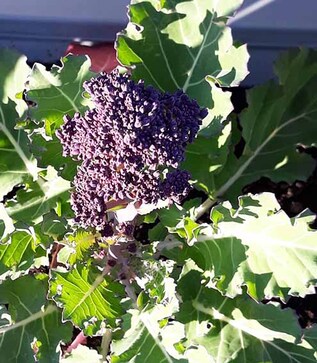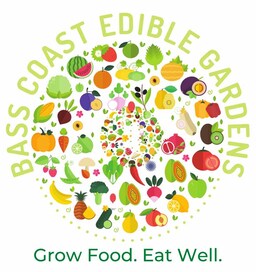
By Sharon Willcox
IN THE past two years, not only did toilet paper disappear from shops but so did vegetable seedlings, as some people decided to start growing their own food for the first time. Across the country, in small towns and in the inner cities, gardeners shared their surplus produce and seeds through community centres and makeshift boxes on their verges.
I was one of many people who took advantage of newly offered gardening courses run by Bass Coast Adult Learning (BCAL) in Wonthaggi. Particularly popular was a course on growing your own vegetables, while some people also studied permaculture and garden design.
IN THE past two years, not only did toilet paper disappear from shops but so did vegetable seedlings, as some people decided to start growing their own food for the first time. Across the country, in small towns and in the inner cities, gardeners shared their surplus produce and seeds through community centres and makeshift boxes on their verges.
I was one of many people who took advantage of newly offered gardening courses run by Bass Coast Adult Learning (BCAL) in Wonthaggi. Particularly popular was a course on growing your own vegetables, while some people also studied permaculture and garden design.
There is good evidence of the many benefits of growing your own food. In these socially distanced times, an early morning spent weeding in your garden is guaranteed to deliver a chat and warm encouragement from passing dog-walkers. My permaculture Facebook group offers seeds to share and advice on dealing with onion grass (it’s an edible weed).
From a sustainability perspective, growing your own food ensures minimum food miles and, if you choose, clean, organically grown food. There’s also considerable awe, as well as enjoyment for the tastebuds – my first crops of eggplants last summer and my purple broccoli and Tuscan kale this winter.
From a sustainability perspective, growing your own food ensures minimum food miles and, if you choose, clean, organically grown food. There’s also considerable awe, as well as enjoyment for the tastebuds – my first crops of eggplants last summer and my purple broccoli and Tuscan kale this winter.
 Grow your own is back in vogue. Now the
Grow your own is back in vogue. Now the search is on for Bass Coast gardeners to
share what they’ve learned.
To encourage more people to grow their own food, planning is underway to hold the first Bass Coast Edible Gardens event on February 19 and 20 2022. BCAL has partnered with a Bass Coast Climate Action Network, community gardens, Landcare associations and other community and health groups.
For this weekend event, we are keen to open a wide range of private and community gardens across Bass Coast that showcase different approaches to growing food, whether it be vegetables, nuts, mushrooms, fruit trees, Indigenous foods, bee hives or chickens.
We would like to include a diverse range of garden sizes and approaches to growing food. This could include food gardens in rented houses or flats, small container gardens in courtyards or rural properties. Some gardens might include raised garden beds, while others use wicking beds, no-dig gardens or hydroponics. There may also be lessons to share around composting, water management or seed-saving.
Are you an enthusiastic food gardener and potentially interested in opening your garden? If so, we’d love to hear from you, ideally before the end of September.
Subsequently, BCAL will also be putting a call-out for volunteers who can help out at the participating gardens to ensure the gardeners are free to chat and share their expertise with visitors.
For now, save the dates, February 19-20 2022. And if you are a gardener, Grow Food, Eat Well!
Call Sharon Willcox on 0423 348 933 if you’re interested in opening your garden.
For this weekend event, we are keen to open a wide range of private and community gardens across Bass Coast that showcase different approaches to growing food, whether it be vegetables, nuts, mushrooms, fruit trees, Indigenous foods, bee hives or chickens.
We would like to include a diverse range of garden sizes and approaches to growing food. This could include food gardens in rented houses or flats, small container gardens in courtyards or rural properties. Some gardens might include raised garden beds, while others use wicking beds, no-dig gardens or hydroponics. There may also be lessons to share around composting, water management or seed-saving.
Are you an enthusiastic food gardener and potentially interested in opening your garden? If so, we’d love to hear from you, ideally before the end of September.
Subsequently, BCAL will also be putting a call-out for volunteers who can help out at the participating gardens to ensure the gardeners are free to chat and share their expertise with visitors.
For now, save the dates, February 19-20 2022. And if you are a gardener, Grow Food, Eat Well!
Call Sharon Willcox on 0423 348 933 if you’re interested in opening your garden.